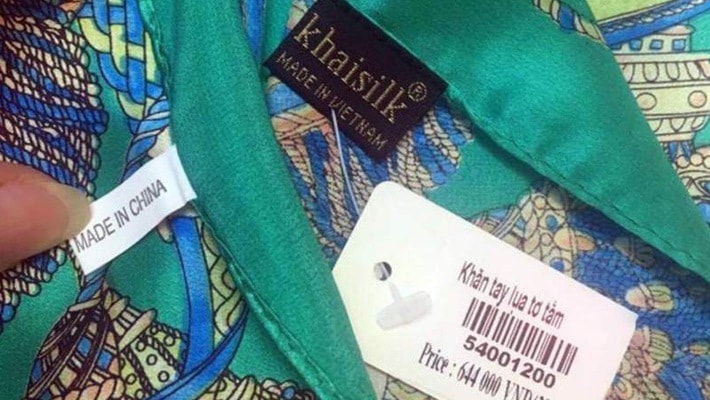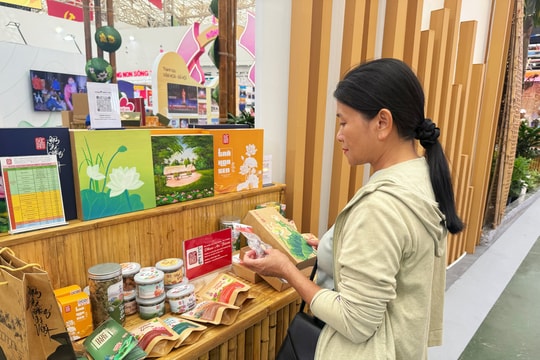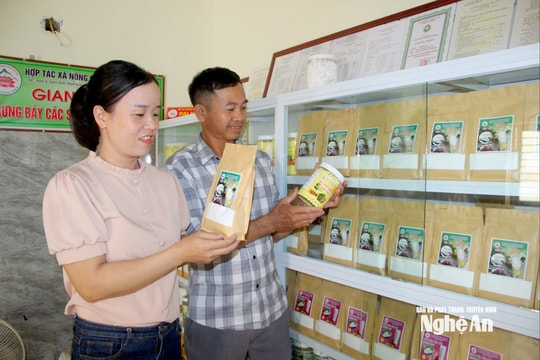New regulations on origin of goods
Goods are considered to be wholly obtained or produced entirely in the territory of a country, group of countries, or territory if they meet certain conditions...
 |
| Packing materials and containers used for the carriage and transportation of goods shall not be taken into account in determining the origin of such goods. |
The Government has just issued a Decree detailing the Law on Foreign Trade Management on the origin of goods.
In particular, the decree stipulates that goods are considered to have origin when they fall into one of the following cases: Goods are purely of origin or are produced entirely in one country, group of countries, or territory as prescribed; Goods are not purely of origin or are not produced entirely in one country, group of countries, or territory, but meet the regulations.
Goods are considered to be wholly obtained or produced entirely in the territory of a country, group of countries, or territory in the following cases:
- Crops and crop products grown and harvested in that country, group of countries, or territory.
- Live animals born and raised in that country, group of countries, or territory.
- Products from live animals mentioned in point 2 above.
- Products obtained from hunting, trapping, fishing, farming, gathering or capturing in that country, group of countries, or territory.
- Minerals and naturally occurring substances, not listed in points 1 to 4, extracted or taken from the soil, waters, seabed or beneath the seabed of a country, group of countries or territory.
- Products taken from the waters, seabed or beneath the seabed outside the territorial waters of a country, group of countries or territory, provided that such country, group of countries or territory has the rights to exploit the waters, seabed and beneath the seabed in accordance with international law.
- Fishing products and other marine products caught from the high seas by vessels registered in that country, group of countries, or territory and permitted to fly the flag of that country, group of countries, or territory.
- Products processed or produced on board from the products specified in point 7 registered in that country, group of countries, or territory and permitted to fly the flag of that country, group of countries, or territory.
- Items obtained during the production or consumption process in that country, group of countries, or territory that no longer perform their original function, cannot be repaired or restored, and can only be discarded or used as raw materials, or used for recycling purposes.
- Goods obtained or produced from products listed in points 1 to 9 in that country, group of countries, or territory.
The Decree stipulates that goods are considered to be of non-pure origin or not produced entirely in the territory of a country, group of countries, or territory if the goods meet the origin criteria in the List of Specific Rules for Goods prescribed by the Ministry of Industry and Trade.
The Decree clearly states that in the case of goods subject to the "change of commodity code" criterion, packaging materials and packages containing goods for retail sale, when classified with the goods, are excluded from non-originating materials used in the production of the goods.
In the case of goods subject to the "percentage of value" criterion, the value of the packaging materials and containers containing the goods for retail sale is considered a constituent part of the goods and is taken into account when determining the origin of the goods.
Packing materials and containers used for the carriage and transportation of goods shall not be taken into account in determining the origin of such goods.
Documents introducing and instructing the use of goods; accessories, spare parts, and tools accompanying goods with appropriate types and quantities are considered to have the same origin as the goods.
Unassembled or disassembled goods imported in multiple shipments due to transportation or manufacturing conditions that cannot be imported in one shipment, if the importer requests, the origin of the goods in each shipment is considered to have the same origin as that goods.
Traders requesting a certificate of origin for the first time must register their trader profile with the agency or organization that issues the certificate of origin and will only be considered for issuance of the certificate of origin when they have registered a complete and valid trader profile.



.jpg)




